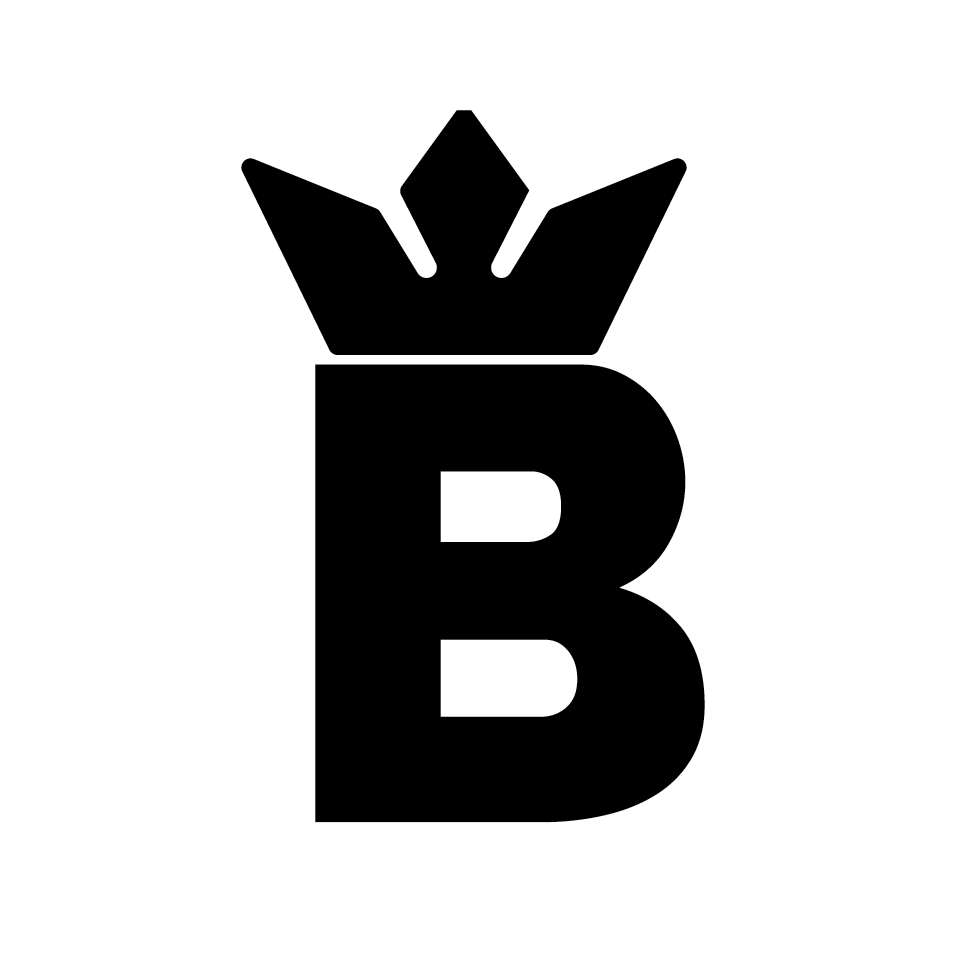
Located on the Heysel plateau in Brussels, the King Baudouin stadium is the largest stadium in Belgium, with a seating capacity of close to 50,000. Every year, it hosts major sporting events such as the national football team’s matches, the Belgian Football Cup final, the prestigious Van Damme Memorial and more. It has also showcased concerts by some of the world’s greatest artists, including the Rolling Stones, U2, Madonna, Beyoncé, Céline Dion, Johnny Halliday, Robbie Williams, Genesis, Bruce Springsteen, Ed Sheeran, Coldplay, and many more to come.
The King Baudouin Stadium is owned by the City of Brussels.
Sports activities and stadium maintenance are managed by Service des Sports de la Ville de Bruxelles (Sports Department of the City of Brussels).
Non-sporting activities are managed by the non-profit organisation Prosport Bruxelles
Centenary Stadium
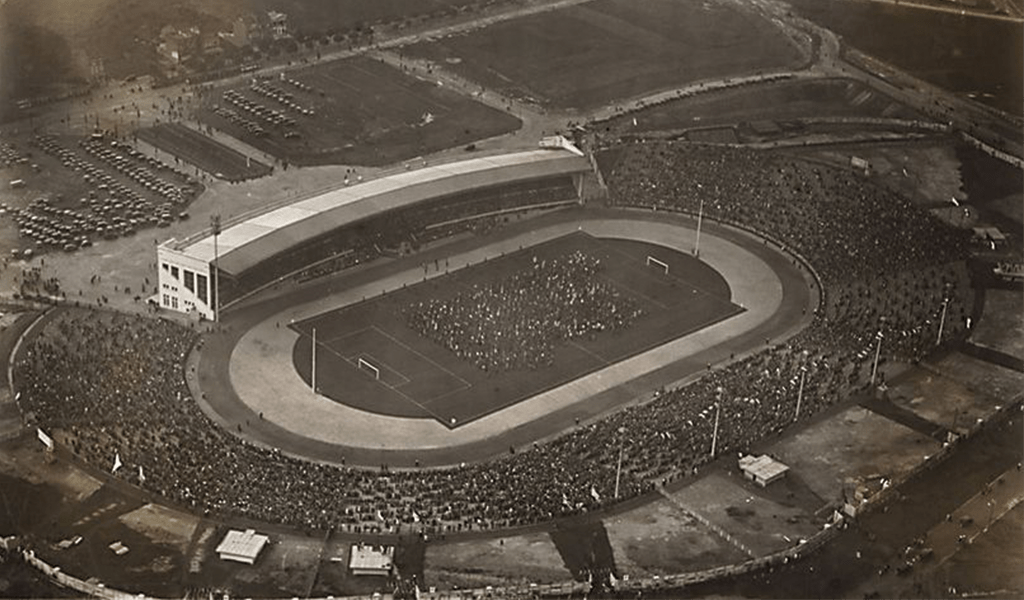
In 1927, the Municipal Council of City of Brussels decided to build a stadium for “all” sports on the edge of the Heysel plateau. The project was entrusted to architect Joseph Van Neck, who was also chief architect for the 1935 Brussels International Exhibition.
The foundation stone for the complex was laid on 4 October 1929 by the Mayor of Brussels, Adolphe Max. On 23 August 1930, the Centenary Stadium was inaugurated to mark the 100th anniversary of Belgium’s independence. On that day, the crowds were already gathered for the first event of many shows, meetings and events to take place at the stadium: the Track Cycling World Championships. It was only three weeks later, on 14 September 1930, that His Royal Highness Prince Leopold officially inaugurated the stadium during the Belgium-Netherlands football derby.
Heysel Stadium
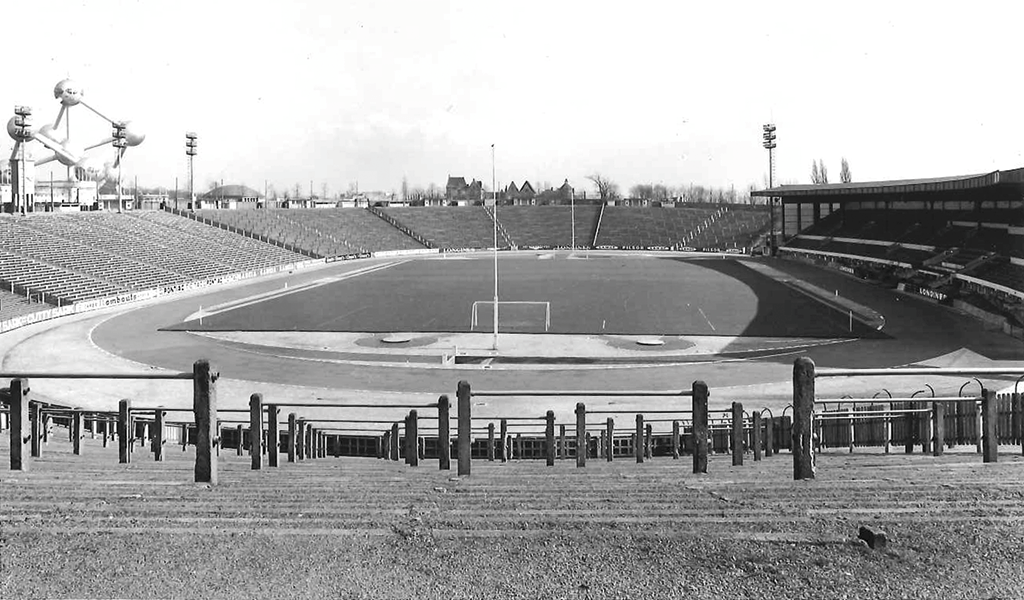
After the Second World War, the stadium was renamed to honour the district where it was located. It thus became known as the “Heysel Stadium”, a place where the magic of sport will enchant sports fans. The wooden track at the Centenary Stadium had disappeared and was probably used as firewood during the Occupation. The stadium then returned to its original function, hosting a number of popular events that attracted increasing numbers of people to the Heysel plateau. In boxing, the fight between Marcel Cerdan and Cyrille Delannoit on 23 May 1948 was one of the most momentous sporting events ever to take place in Belgium.
In 1971, the stadium was equipped with a tartan track, enabling it to host athletics competitions. In 1974, a new lighting system was installed. On 29 May 1985, the stadium suffered a tragedy during the European Champion Clubs’ Cup final between Liverpool and Juventus. A confrontation match between supporters of the two sides caused a wall and dividing fences to collapse, resulting in the deaths of 39 people and leaving more than 400 injured.
King Baudouin Stadium
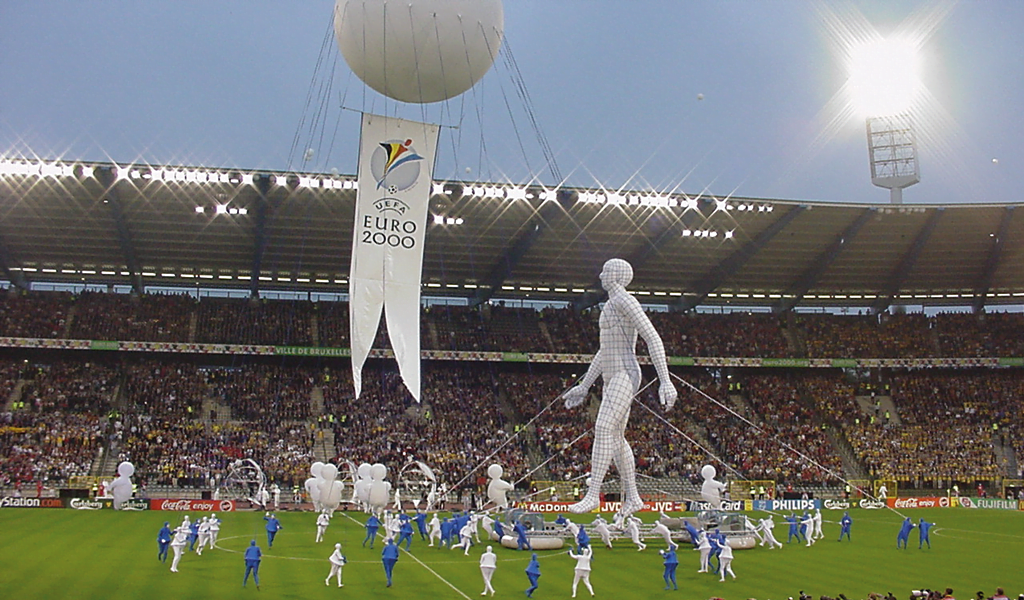
In the 1990s, the Euro 2000 appeared on the horizon. To achieve this goal, the stadium needed a facelift: it was renovated and renamed. On 25 October 1993, a memorandum of understanding was signed between the Federal State (because of the stadium’s international role), the City of Brussels (owner of the facility), the Brussels Capital Region, the Brussels Exhibition Centre NPO and the Royal Belgian Football Association. They all agreed to jointly renovate the Heysel Stadium, which will henceforth be known as the King Baudouin Stadium in honour of King Baudouin I who died on 31 July 1993. On 23 August 1995, exactly 65 years after the inauguration of the Centenary Stadium, the new facilities were inaugurated in the presence of the Royal Family at a football match between Belgium and Germany. In 2023, further renovation work was undertaken. All the seats were replaced and the athletics track was completely re-laid with a brand new Mondo surface, giving the stadium its contemporary design.

Throughout its rich history, the King Baudouin Stadium has hosted many sporting and cultural events.
A non-exhaustive list of the main sporting events that have taken place at the King Baudouin Stadium:
1930: Track Cycling World Championships
1930 to date: the vast majority of matches involving the Belgian national football team
1937: Gordon Bennett cup (gas balloon race)
1948: Cerdan vs Delannoit boxing match
1952: World archery championships
1954 to date: Final of the Belgian Football Cup
1958: Final of the European Cup
1960: Tour de France stage finish
1964, 1976, 1980 and 1996: Final of the Cup Winners’ Cup
1970: European Hockey Cup
1972: Final of the European Football Championship
1977 – present: Van Damme Memorial
1980-2004: Eddy Merckx Cycling Grand Prix
1985: Final of the European Cup
1996: Final of the European Cup Winners’ Cup
2000: Euro 2000 football tournament (five matches including the opening match)
2010: Best of World Tennis
2015: Monster Jam
Non-exhaustive list of the main concerts held at the King Baudouin Stadium:
1997: Céline Dion
1999: Céline Dion
2000: Johnny Halliday
2003: Johnny Halliday, Bruce Springsteen
2005: U2
2006: Robbie Williams
2007: Genesis
2008: Bon Jovi, André Rieu
2009: Mylène Farmer
2010: U2
2012: Madonna
2013: Robbie Williams
2015: One Direction
2016: Beyoncé
2017: Coldplay, U2
2019: Metallica, Rammstein
2022: Rolling Stones, Ed Sheeran, Coldplay
2023: Beyoncé, The Weeknd, Mylène Farmer, Rammstein
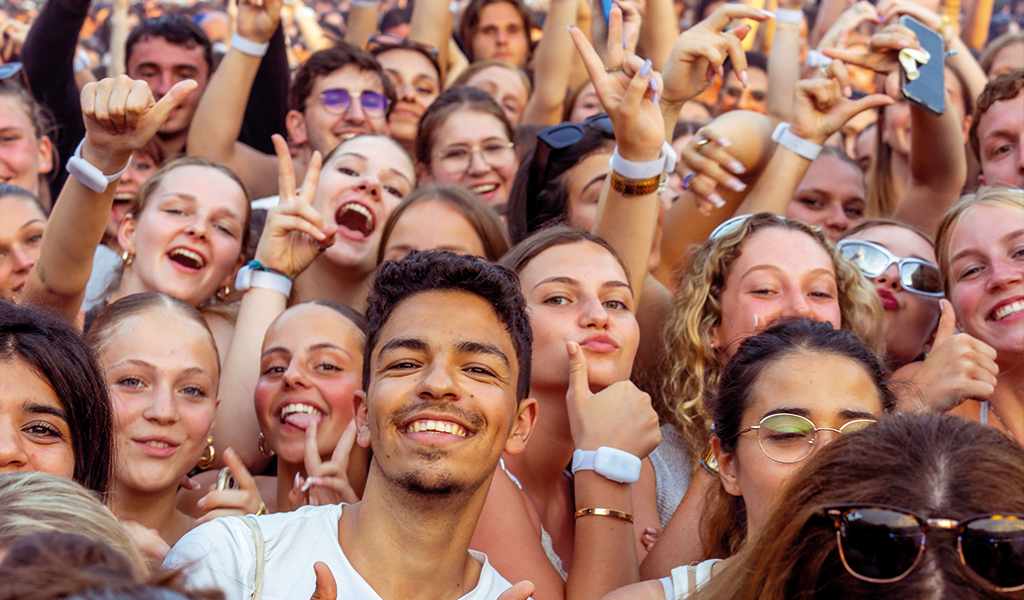
Capacity
49,825 seats in four stands
Up to 65,000 seats at concerts
Dimensions
Length of stadium: 217.5 m
Width of the stadium: 137.5m
Length of pitch: 105 m
Width of the pitch: 66 m
Height of the roof: 36 m
Total surface area of the stadium and its annexes: 8 hectares
Equipment
5 pitches (1 central pitch and 4 ancillary pitches)
1,400-metre Mondo athletics track with 9 lanes
9 changing rooms
4 lighting pylons, each weighing 51 tonnes and standing 60 m high
486 spotlights in total
1,500 lux maximum power
1 giant 21/9 screen measuring 13.5m x 6m



